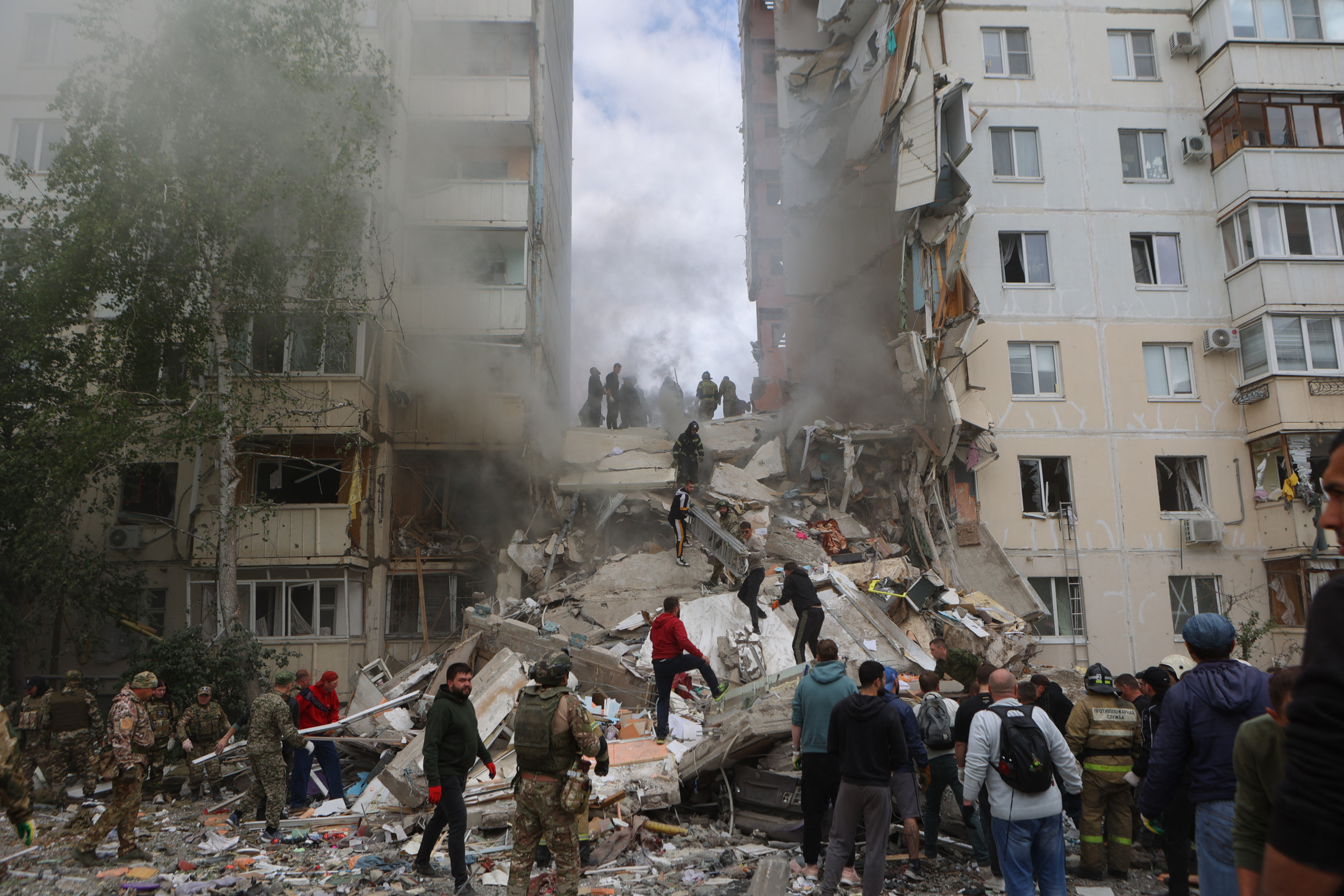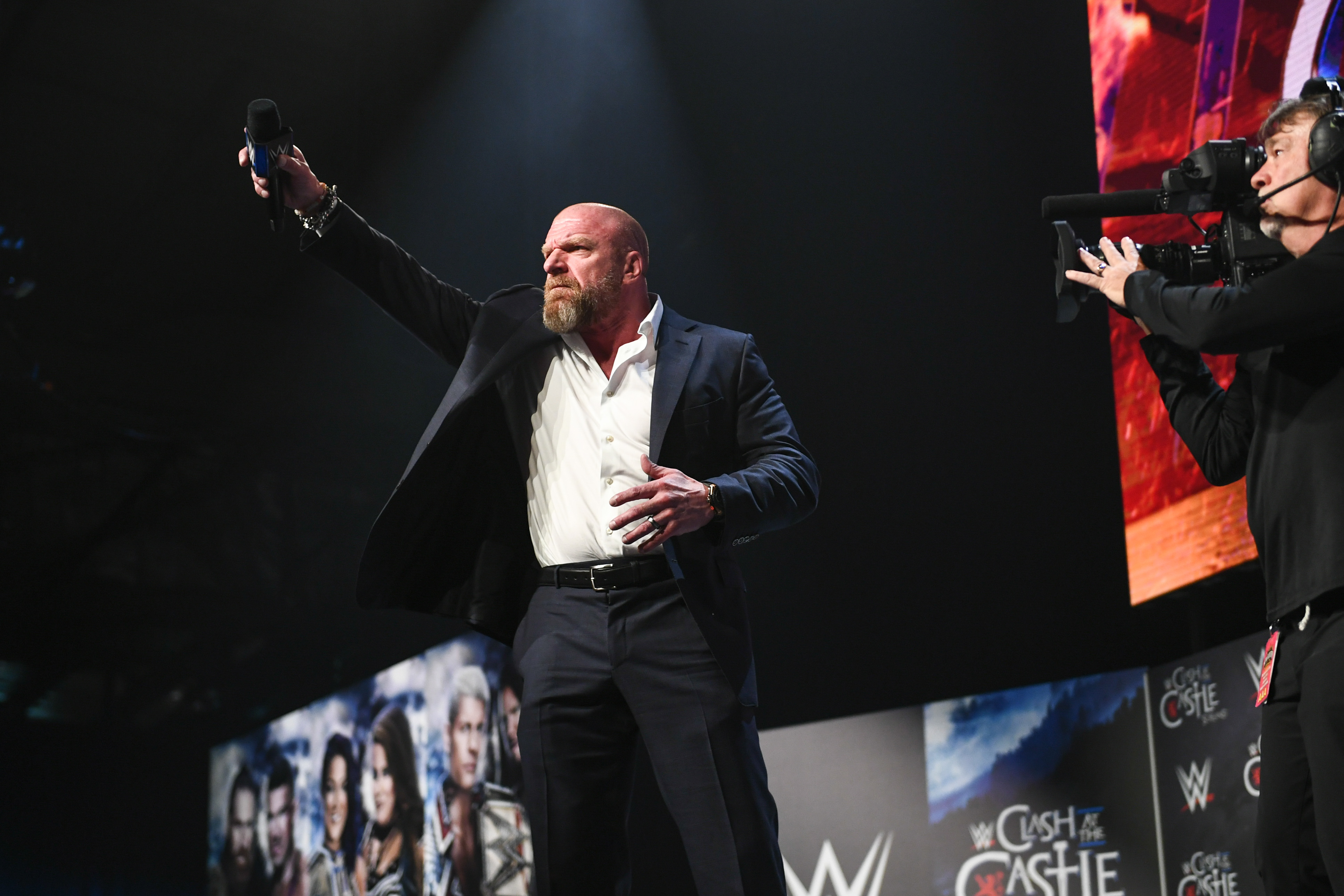The battle for TV supremacy has grown more crowded than ever. With literally dozens of new shows released across dozens of platforms each month, networks and studios are fighting for an ever-shrinking share of attention from audiences who are drowning in choice. In the post-Game Of Thrones landscape, it seems increasingly unlikely that we’ll ever again have that watercooler show that becomes both a commercial smash and cultural touchstone. But that hasn’t stopped everyone from trying to capture the zeitgeist.
Amazon, while an indomitable corporate force in every other area of our lives, has struggled to get viewers to latch onto its lavish, often wildly expensive original programming. Fallout and The Boys may have broken the curse but then there are series like The Lord Of The Rings: The Rings Of Power, the single most expensive TV series ever created that has yet to feel like an essential show, or The Wheel Of Time, a creaky fantasy drama that looks and feels years out of date. Jeff Bezos’ Hollywood wing has the luxury of that pre-established financial security net, meaning Prime Video is often more willing to fling money at a show to keep it around and see if it will eventually work. That’s certainly admirable compared to the cancellation-heavy frenzies of Netflix, but then you’re left wondering where all of that cash went and why. Case in point: a big money pit and Prime’s most glaring example of trying to birth a mega-hit IP, the Citadel franchise.
The brainchild of Amazon Studios chief Jennifer Salke, Citadel was imagined as the world’s first global TV series, a multi-pronged expanded universe of interconnecting narratives and characters spanning decades and continents. She enlisted the Russo brothers, who certainly know their way around a major franchise, to bring the concept to life. Citadel would have its main title series to act as the anchor of the saga, then many international versions that would utilize local talent and appeal to different worldwide demographics. There would be spin-off shows set in Africa, Europe, and Asia. The first one, Citadel: Diana, which premiered October 10, is an Italian production, while Citadel: Honey Bunny, which kicked off November 7, is an Indian one. It made sense for Amazon, ever the purveyors of algorithmic control and appealing to literally everyone. And it was a concept they so thoroughly believed in that it put down $300 million for the six-episode first season.
Citadel, the franchise mothership, starred Priyanka Chopra and Richard Madden as agents Nadia and Mason, Citadel agents whose memories are wiped after the discovery of a rival agency, Manticore. Eight years after that, both are living quiet lives as seemingly normal people until they are dragged back into their old occupations as Manticore extends its reach into the world of espionage and treachery. It’s a familiar concept for the spy genre, a little bit of Craig-era Bond with a dash of The Long Kiss Goodnight and True Lies, plus the kinetic pacing of Mission: Impossible. In execution, however, it was sorely lacking.
Madden and Chopra, two talented and gorgeous actors, have no chemistry, and their “we have Bond at home”-style attempt at sexy banter is no substitute. They’re playing this tired concept entirely seriously, while stalwart character actors Lesley Manville and Stanley Tucci at least seem aware that there’s some silliness to be mined from such self-important fodder. It’s a show that takes itself extremely seriously but not in a way that could help to elevate such material. The plot is on rails, unfolding in all the expected ways but still feeling curiously half-baked. The first season underwent massive amounts of reshoots, and it’s evident in the final product.
All that and it doesn’t even look expensive. This is a major problem with modern blockbusters, films with $200-million-plus budgets that look as gray and inert as films a tenth their cost. There’s an overt slickness to Citadel’s action scenes that robs it of its impact, rendering high-stakes set-pieces flat and safe, a matter not at all helped by chintzy CGI that exacerbates the artifice of it all.
Citadel premiered in May 2023 and was met with a worldwide shrug. Reviews were middling, and audiences didn’t seem to care. It’s left behind a shockingly small footprint, even at a time when niche shows can thrive if they find their viewers. Nielsen’s weekly streaming rankings for its second full week of availability (via Variety) noted that it just missed the streaming originals top-ten chart, putting it behind John Mulaney’s latest standup special, Baby J. But they’d invested so much into the concept already that of course a second season was greenlit, with Joe Russo set to direct every episode. And the spin-offs were in the pipeline, waiting for their chance. Citadel: Diana was released to little fanfare and very few mainstream reviews in America (although it did well in Italy), while Citadel: Honey Bunny has received similarly muted hype.
Citadel: Diana is a step up but it’s also still just kind of okay. Set in Milan in the year 2030, Diana Cavaleri (Matilda De Angelis) is a Citadel agent who has infiltrated the headquarters of Manticore, driven by revenge over the death of her parents in a plane crash caused by the organization. Exhausted and demoralized by her mission, Diana wants out, but a chance encounter with Edo Zani (Lorenzo Cervasio), the next in line to take over Manticore, leaves her with a difficult decision to make about her future.
Diana is still a pretty standard spy thriller, even with its fun near-future details and lead being saddled with the silliest haircut outside of Claire on Fleabag. However, its action scenes are clearer and more ambitiously shot than the original series, and there are intriguing ideas at play with the double agent setup. Still, it feels as underdeveloped as its American predecessor and lacks character development. Why would Diana, who is supposed to be laying low and blending in with her Manticore colleagues, dress like a fashion model in every scene?
Of the three, Honey Bunny is probably the best (with the worst title). A prequel that focuses on Nadia Sinh’s childhood and her mother, its setup has more heft than its predecessors. Varun Dhawan plays Rahi “Bunny” Gambhir, a stuntman looking for his breakout role who does some low-level heists on the side for some extra cash. He recruits his friend Honey (Samantha Ruth Prabhu), an unemployed actor in desperate need of money, to help with a one-off job. What starts as a fake seduction soon goes horribly wrong. A decade later, the pair are forced to reunite as their daughter is put in danger and the troubles of their past come back to haunt them.
Honey Bunny benefits from dropping the slickness of its forerunners in favor of some welcome grit. This is a lived-in setting with a few stylistic flourishes that feel straight out of a ’90s summer blockbuster, with the plot jumping back and forth between the ’90s and 2000s. The pilot has some fun True Lies vibes with Bunny’s faux-damsel routine. And her evolution into a hardened spy always looking behind her back works. Directors Raj & DK, who have worked with Prime before, have a good handle on shooting action scenes for TV, giving the audience car chases, shoot-em-ups, and punch-fests that feel grounded in a real world and not smothered by VFX. It even has a sassy and delightfully non-irritating moppet, the young Nadia, who is taught to fend for herself by her mother. We see the beginnings of who she will become in the first series, which would make us intrigued to see more under regular circumstances. But even at its best, Honey Bunny feels a touch sanitized, as though Prime told its makers to avoid anything too bloody or abrasive.
Such is the grand problem with Citadel. It’s hard to escape the sense that this entire franchise was made with all the passion and artistic drive of a boardroom full of charts and algorithms. The basic concept of a global spy thriller that captures the truly international nature of such work isn’t a bad one. In practice, however, all of the unique quirks such a project could offer have been sanded down in favor of generating something that nobody could possibly be offended or challenged by. Neither Diana nor Honey Bunny does much to differentiate itself from its American counterpart. Wouldn’t there be cultural differences or at least a fun opportunity to shake things up with locally specific types and styles? The last thing this franchise needs is further homogeny.
When asked why they signed onto Citadel in the first place, the Russo brothers said they were drawn to the ambition of this project. Sure, it’s not a concept devoid of such qualities but it’s hard to describe this series in all its forms as boundary-pushing. Strip away the budget and hype, and it’s a spy thriller told in a very familiar manner that doesn’t want to be anything else. That’s not worthless, but for hundreds of millions of dollars, you’d at least expect it to be interesting. Instead, it looks like every other blockbuster, sounds like every other blockbuster, and has the same twists as every other blockbuster.
In many ways, it’s fallen into the same trap as every Hollywood production that’s tried to replicate the success of the Marvel Cinematic Universe. Studios have tried to reverse-engineer a vast franchise with mass appeal without laying the groundwork for anyone to get interested in the first place. But the MCU was not born as a billion-dollar idea. It took years of planning and getting people to care about its characters and the stakes before they could offer those record-breaking payoffs. Citadel feels like Amazon jumped straight to The Avengers without any of the Phase One foundations. It’s not without entertainment or potential, but when you’ve been told to prepare for all of these sequels without any incentive, you shouldn’t be surprised when nobody tunes in.




















 English (US) ·
English (US) ·